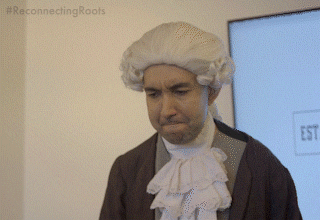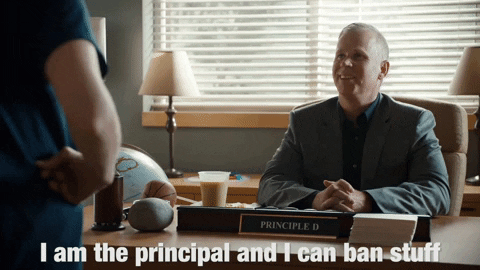
This logo isn't an ad or affiliate link. It's an organization that shares in our mission, and empowered the authors to share their insights in Byte form.
Rumie vets Bytes for compliance with our
Standards.
The organization is responsible for the completeness and reliability of the content.
Learn more
about how Rumie works with partners.
You have a lot of freedom to express yourself according to the First Amendment to the U.S. Constitution.

BUT...this freedom has limits!
Free speech doesn't mean that ALL speech is allowed. Knowing the limits of free speech will keep you out of trouble when speaking your mind.
What Is The Constitution?

The United States Constitution is like an instruction manual for how the U.S. government makes decisions about the country.
Even though it was written in 1878, it's a living document. 27 Amendments, or changes, have been added to it since it was first written to make the rules more clear.
The first 10 Amendments explain what your rights are as a U.S. citizen.
What Does The First Amendment Say?

Congress shall make no law respecting an establishment of religion, or prohibiting the free exercise thereof; or abridging the freedom of speech, or of the press; or the right of the people peaceably to assemble, and to petition the Government for a redress of grievances.

In short, the government can't...
stop you from speaking your mind.
force you to practice (or not practice) a religion.
make it illegal to peacefully protest the government's decisions.
tell the media what they can and can't say.
BUT there are clear exceptions and limits to these rights.
What Are You Allowed To Say?

Did you know?
How About In School?

Your school also has some rights to limit your speech and expression.
Your school can:
ban any speech they consider socially unacceptable.
make you follow a dress code.
censor or edit student-created content in school newspapers, yearbooks, and websites.
require you to sign a code of conduct that includes rules for behavior on social media.
penalize you within reason for breaking its code of conduct.
Quiz
You go to a protest off of school grounds during the afternoon and you miss class. What is the school allowed to do in response?
All the school can do is mark you absent (or give you whatever penalty they give other students for missing class). Your free speech is protected from discrimination but not from reasonable school rules.
Take Action
Free speech comes with responsibilities!

This is especially true in school, where you're learning different ways to express yourself while trying to get along with others.
You can say or do whatever you want, so long as it's not illegal, against reasonable school policies, or doesn't prevent anyone from enjoying their rights.
To learn more about your First Amendment rights:
This Byte has been authored by
Steve Birek
Director of Learning Content at Rumie
